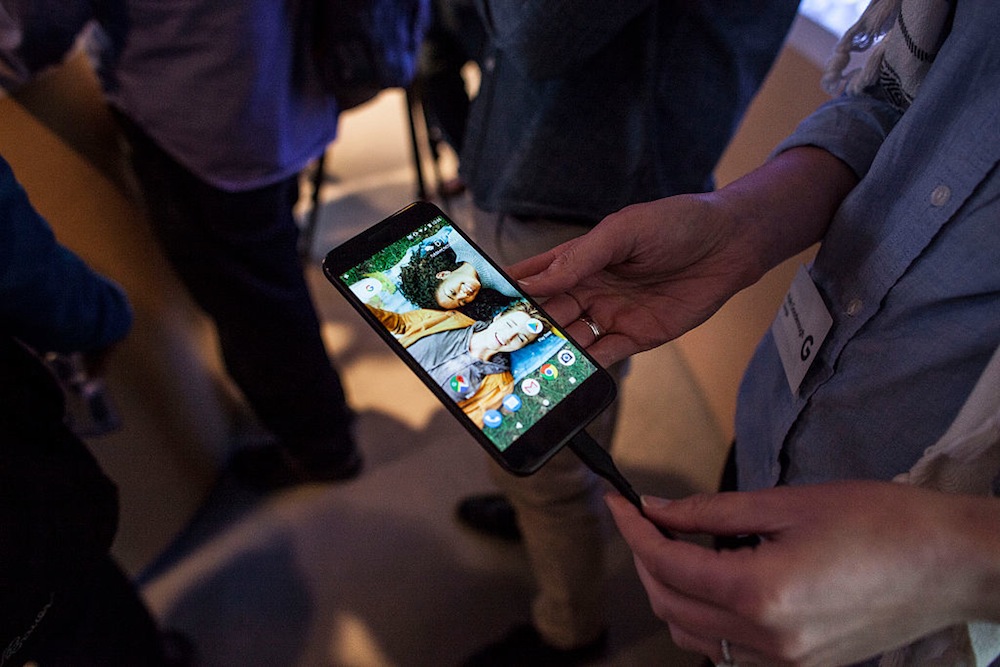What Makes the Google Pixel Different from Other Smartphones?

Get the world’s most fascinating discoveries delivered straight to your inbox.
You are now subscribed
Your newsletter sign-up was successful
Want to add more newsletters?

Delivered Daily
Daily Newsletter
Sign up for the latest discoveries, groundbreaking research and fascinating breakthroughs that impact you and the wider world direct to your inbox.

Once a week
Life's Little Mysteries
Feed your curiosity with an exclusive mystery every week, solved with science and delivered direct to your inbox before it's seen anywhere else.

Once a week
How It Works
Sign up to our free science & technology newsletter for your weekly fix of fascinating articles, quick quizzes, amazing images, and more

Delivered daily
Space.com Newsletter
Breaking space news, the latest updates on rocket launches, skywatching events and more!

Once a month
Watch This Space
Sign up to our monthly entertainment newsletter to keep up with all our coverage of the latest sci-fi and space movies, tv shows, games and books.

Once a week
Night Sky This Week
Discover this week's must-see night sky events, moon phases, and stunning astrophotos. Sign up for our skywatching newsletter and explore the universe with us!
Join the club
Get full access to premium articles, exclusive features and a growing list of member rewards.
Google debuted its first smartphone this week, dubbed "Pixel," signaling the company's move into an industry long dominated by the likes of Apple and Samsung. And considering Google is already the developer of the Android mobile operating system, what will make the Pixel different from other smartphones already on the market?
Google unveiled the Pixel Oct. 4, saying it will provide the best experience "by bringing hardware and software design together under one roof."
This isn't Google's first foray into the smartphone industry: The company's Android operating system is available on smartphones from a number of companies, including Samsung, HTC and Motorola. Previous smartphone releases from Google were part of the Nexus program, in partnership with other smartphone providers. But Pixel is all Google's — the first smartphone built entirely by the company. [9 Odd Ways Your Tech Devices May Injure You]
"With Pixel, we obsessed over every detail, from the industrial design to the user experience," Brian Rakowski, vice president of product management at Google, wrote in a blog post to introduce the new phone.
With its curved edges, sleek design and two size options, the Pixel is reminiscent of Apple's iPhone. The 5-inch Pixel has a 1080p screen — 1440 x 2160 on the 5.5-inch Pixel XL — 4GB of RAM and either 32GB or 128GB of storage. The new iPhone 7 has similar specs: the screen resolution is 1334 x 750, with 2GB of RAM and storage options of 32GB, 128GB or 256GB.
Google has highlighted that Pixel users also will have unlimited photo and video cloud storage, which may quell some smartphone users' fears of reaching their storage capacity.
Pixel also has what Google is touting as the "best smartphone camera ever." The 12.3-megapixel rear camera received top marks from DxOMark, which measures camera image quality through rigorous testing. With an overall score of 89, the Pixel's camera surpassed every other smartphone camera currently on the market, reported Tom's Guide.
Get the world’s most fascinating discoveries delivered straight to your inbox.
"Pixel puts cutting-edge computational photography in an ultra-fast and easy-to-use camera," Rakowski wrote in the blog post. "Our team of photography gurus and image-processing experts have spent the last year designing and tirelessly optimizing our entire camera stack. Pixel's camera lets you take stunning photos in low light, bright light or any light."
Another feature touted by Google is the Pixel's battery and charge time. According to the company, 15 minutes of charge will yield 7 hours of use. Pixel is also the first phone with the company's virtual "smart" service, known as Google Assistant, built in, allowing users to have "a natural conversation with Google" to search or complete tasks.
Pixel phones will start at $649 (equivalent to the price of the new iPhone 7) for the smaller versions and $769 for the "XL" model. The phone comes in three colors: "really blue," "very silver" and "quite black." In addition to being available for preorder from Google directly, Pixel can be bought at all Verizon retail outlets, including Best Buy stores.
At the Google event earlier this week, the search-engine company also announced the launch of a new virtual reality headset and a home assistant to rival Amazon's Alexa.
Original article on Live Science.

 Live Science Plus
Live Science Plus










